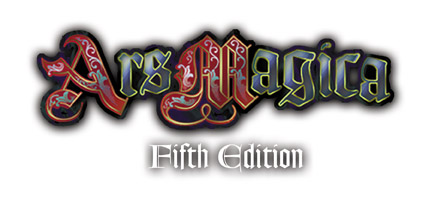Mundane Wealth
Back to Ars Magica: Nova Semitae Saga
The covenant engages in a number of activities to earn money for the covenant, but these are the current incomes sources:
Once wealthy due to its produce and meadery, the covenant is starting to slip into a state of disrepair mostly due to the recent loss of all of its founding magi. This was alleviated somewhat with the infusion of some new blood who helped stave off ruin for the covenant and its resources through magical items and some skillful mundane politicking. Additionally, the casting of The Bountiful Feast has helped increase the productivity of the covenant's harvest. However, two former apprentices have chosen to leave the covenant, and Nova Semitae is down to only two Hermetic magi and one hedge wizard.
In Summer 1219, a lavish feast that involved the entire covenant and a couple hundred magi of the Order took place, depleting the covenant's reserves.
The Mythic Pound
Much like 'Mythic Europe', the Mythic Pound is not an actual unit of money in Mythic Europe. Money is generally in silver pennies, with several teams to denote larger amount of pennies, as follows:
1 Mythic Pound = 20 shillings = 240 pennies
Therefore, 1 shilling = 12 pennies.
Also in use around this time was the practice of cutting a penny into halves and quarters to make change. This produces the half-penny and the quarter-penny (farthing). These denominations are used only by the peasantry for extremely cheap purchases.
Covenant Financials
All figures in Mythic Pounds.
Calculated for 1229, end of year.
Bottom Line
| Income | 449.20 | £449-4s |
| Expenditures | 393.65 | £393-13s |
| Surplus (Deficit) | 55.60 | £55-12s |
| Covenant Reserves | 294.7 | £294-14s |
| Restricted Reserves | 18 | £18 |
* The covenant has an additional reserve of silver coins thanks to a casting of a variant of The Riches That are Rightfully Mine(d). It was invented by Justinian of Tremere in 1180 and created 1000 Mythic Pounds of silver coinage. At the time, it was used heavily to pay for early buildings and upkeep of the covenant until the 1208 Tribunal that passed a law restricting covenants from introducing an amount of magically-created silver into the economy to 2 pounds per magus per year. The covenant does draw on this to help pay for upkeep of the covenant up to the maximum per year.
Covenant finances by year
- 1220s: 1220 1221 1222 1223 1224 1225 1226 1227 1228 1229
- 1230s: 1230 1231 1232 1233 1234 1235 1236 1237 1238 1239
Potential Savings
Magi and Companions that are wondering can seek the following specialists that could reduce expenditures:
- Note: all these will cause wages to rise, but the amount added to wages will be more than offset by reductions in other expenditures, leading to overall reduction.
- Cost-savings for specialists is calculated as follows: the lower of 20% of the total expenditures, or:
- 1 + half the specialist's Skill, for common skills, or
- the specialist's full Skill, for rare skills
- Consumables: Magical items to reduce the amount of regularly 'consumed' items: food, or other daily consumed items that need to be purchased. Hiring a worker to create the consumed items locally will reduce the need to purchase the items outside the covenant. Example workers include: tinker, weaver, leatherworker, cooper, clothier.
- Laboratories: Hire up to 5 specialists to keep laboratories stocked. Examples include: Glassworker, apothecary, goldsmith, silversmith, lapidary (gemstone smith), engineer, tool-maker
- Weapons & Armor: Hire an armorer or weaponsmith to keep the grogs' armor or weapons repaired. This would allow the covenant to spend more on weapons and armor, but the costs would be offset since the specialists would simply create the needed items.
- Writing Materials: Hire a percaminarius (maker of parchment). This would require having a flock of sheep (the customary animal), or other animals, to use for parchment.

